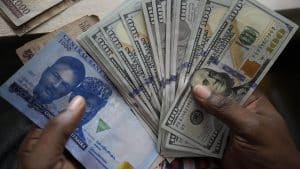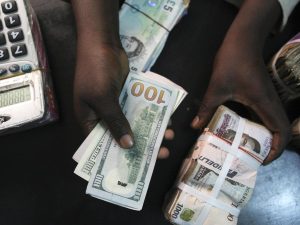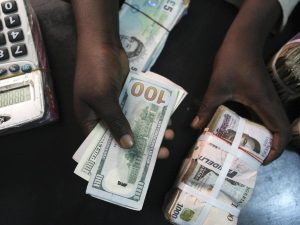
Nigeria’s headline inflation rate is anticipated to average 30.5% year-on-year in 2025, ultimately decreasing to 27.1% by December.
This forecast, as outlined in the recent Nigerian Economic Summit Group (NESG)-Stanbic IBTC Business Confidence Monitor report, is predicated on the expectation that headline inflation will remain elevated in September 2025 but will fall below 30.0% thereafter.
This decline is attributed to the gradual easing of high petrol prices from the year-on-year inflation calculations, assuming there are no unforeseen adverse fluctuations in petrol prices.
Naija News reports that inflation continues to be a significant issue for Nigeria’s economy, with increasing fuel prices and currency devaluation contributing to rising costs across all sectors.
The report stated, “We expect headline inflation to remain sticky in 9M:25 but settle below 30.0 per cent from September 2025 as high petrol cost gets smoothened out of the year-on-year headline inflation, barring any unexpected negative shocks to petrol prices.
“This expectation, in addition to our prognosis on the USD/NGN pair, fiscal deficits, and food supplies, informs our forecast that the headline inflation may average 30.5 per cent y/y in 2025 and settle at 27.1 per cent by December 2025.
“In our view, this could induce the Monetary Policy Committee (MPC) of the Central Bank of Nigeria (CBN) to switch to an accommodative monetary policy stance in late 2025. A relatively lower headline inflation in H2:24 should support consumer spending, and business activity should also improve as the impact of the government’s two-flagship policies (FX liberalization and fuel subsidy removal) subside.”
The report projects that the Nigerian economy will experience a growth rate of 3.5% year-on-year in 2025, an increase from the estimated 3.2% year-on-year growth in 2024.
The expected moderation of inflation is likely to impact monetary policy decisions. The report suggests that the Monetary Policy Committee of the Central Bank of Nigeria may consider a more accommodating approach by late 2025, which could involve lowering interest rates to encourage economic activity.
Additionally, the report noted a slight recovery in business performance in December 2024, attributed to seasonal demand during the festive period.
Naija News understands that the Current Business Performance Index, which gauges economic activity across various sectors, improved to +0.77, a notable rise from the -2.74 recorded in November.
This improvement represents the first positive reading since September 2024, indicating a modest increase in business activity.
However, sector performance varied significantly. Agriculture was the leading sector, achieving a net balance of +13.93, driven by increased harvest activities and heightened demand for agricultural products.
Non-manufacturing industries also demonstrated resilience, with a net balance of +5.80. Conversely, the manufacturing, trade, and services sectors encountered considerable difficulties.
The Future Business Expectation Index, which measures optimism regarding future business conditions, registered at +28.61 in December 2024, a slight decrease from +33.17 in November.
Despite this decline, the index still reflects a sense of cautious optimism among businesses regarding improved conditions in the first quarter of 2025, particularly within the agriculture, manufacturing, and non-manufacturing sectors.
The post ‘Nigeria’s Headline Inflation Rate May Drop To 27% By December’ appeared first on Naija News.
Discover more from Smlblogtv
Subscribe to get the latest posts sent to your email.








